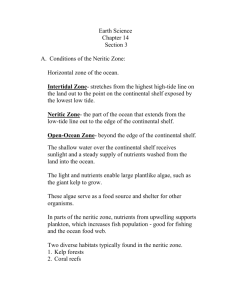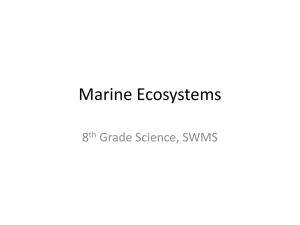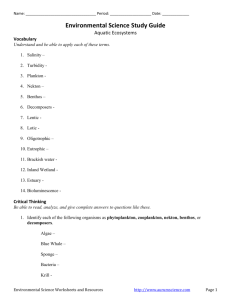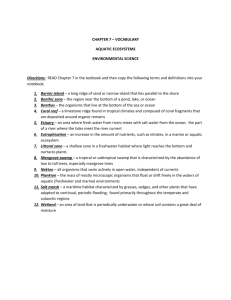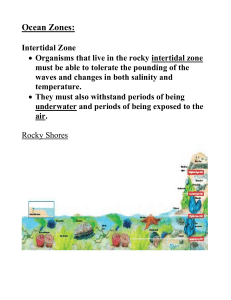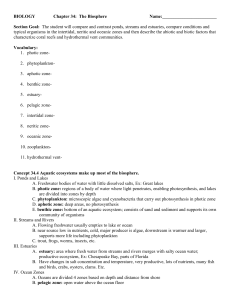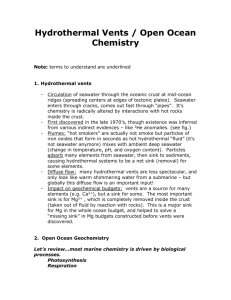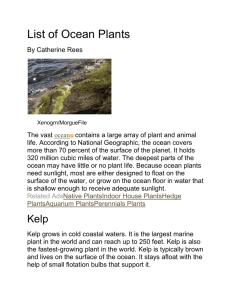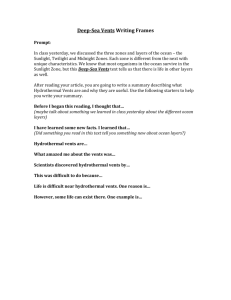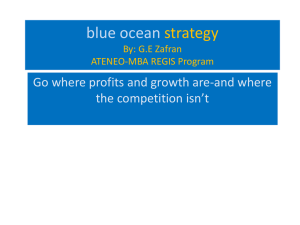Ch 14 Study Guide - Stephanie Dietterle Webpage
advertisement
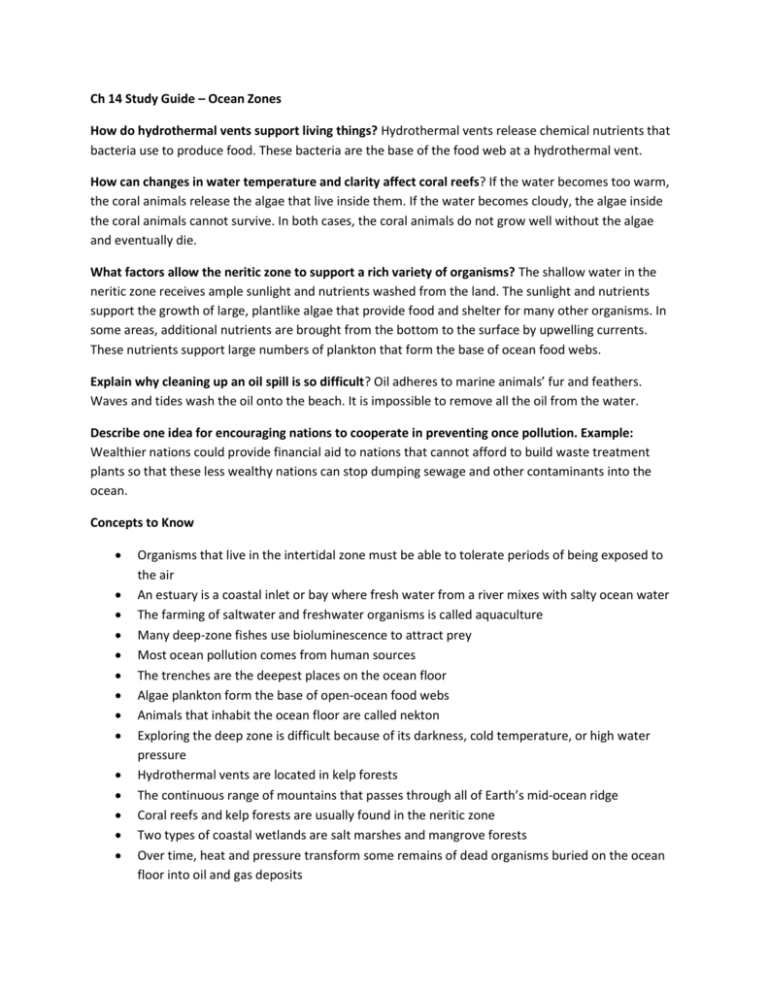
Ch 14 Study Guide – Ocean Zones How do hydrothermal vents support living things? Hydrothermal vents release chemical nutrients that bacteria use to produce food. These bacteria are the base of the food web at a hydrothermal vent. How can changes in water temperature and clarity affect coral reefs? If the water becomes too warm, the coral animals release the algae that live inside them. If the water becomes cloudy, the algae inside the coral animals cannot survive. In both cases, the coral animals do not grow well without the algae and eventually die. What factors allow the neritic zone to support a rich variety of organisms? The shallow water in the neritic zone receives ample sunlight and nutrients washed from the land. The sunlight and nutrients support the growth of large, plantlike algae that provide food and shelter for many other organisms. In some areas, additional nutrients are brought from the bottom to the surface by upwelling currents. These nutrients support large numbers of plankton that form the base of ocean food webs. Explain why cleaning up an oil spill is so difficult? Oil adheres to marine animals’ fur and feathers. Waves and tides wash the oil onto the beach. It is impossible to remove all the oil from the water. Describe one idea for encouraging nations to cooperate in preventing once pollution. Example: Wealthier nations could provide financial aid to nations that cannot afford to build waste treatment plants so that these less wealthy nations can stop dumping sewage and other contaminants into the ocean. Concepts to Know Organisms that live in the intertidal zone must be able to tolerate periods of being exposed to the air An estuary is a coastal inlet or bay where fresh water from a river mixes with salty ocean water The farming of saltwater and freshwater organisms is called aquaculture Many deep-zone fishes use bioluminescence to attract prey Most ocean pollution comes from human sources The trenches are the deepest places on the ocean floor Algae plankton form the base of open-ocean food webs Animals that inhabit the ocean floor are called nekton Exploring the deep zone is difficult because of its darkness, cold temperature, or high water pressure Hydrothermal vents are located in kelp forests The continuous range of mountains that passes through all of Earth’s mid-ocean ridge Coral reefs and kelp forests are usually found in the neritic zone Two types of coastal wetlands are salt marshes and mangrove forests Over time, heat and pressure transform some remains of dead organisms buried on the ocean floor into oil and gas deposits The only part of the open ocean that receives enough sunlight to support algae growth is the surface zone Free-swimming animals that move throughout the water column are called nekton The gently sloping, shallow ocean floor extending out from the edge of a continent is known as the continental shelf

